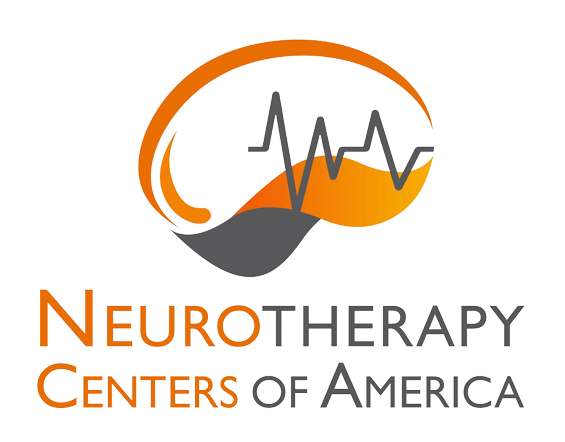
Vitamin D is NOT a Vitamin!
“Vitamin D is the only nutrient in your body that makes itself .” - Julia Phares
What is Vitamin D?
Vitamin D is a nutrient when found in foods and a hormone produced in the body, primarily through the skin when exposed to sunlight. The type of Vitamin D that humans and animals need and produce is Vitamin D3, which is mostly found in fatty fish and fish liver, and in smaller amounts, it is found in egg yolks. Vitamin D2 is produced by fungi and plants and is a pre-form of Vitamin D3.
As a fat-soluble nutrient that is known to help the body absorb and retain calcium and phosphorus; which are both essential for building bone, vitamin D has been shown in numerous studies to reduce cancer cell growth and help reduce or control infections and inflammation. There are many organs and tissues in the body that contain receptors for vitamin D, which indicates the importance of Vitamin D, beyond just bone health.
*Vitamin D requires Vitamin K2 in order to be absorbed by the bones vs the bloodstream. If too much calcium enters the bloodstream, over time this can lead to hardening and calcification of blood vessels, resulting in strokes and heart attacks. Every Vitamin D3 supplement should contain K2 for proper distribution of this supplement.
How Does Vitamin D Work?
Vitamin D is a steroid hormone (aiding in growth, development, energy metabolism, homeostasis, and reproduction) produced from cholesterol when the skin is exposed to sunlight. It can also come from some foods, such as eggs and fish. To become active, or useful, it must be converted in the liver, where it may be stored, and then on to the kidneys to be converted again before being used by the cells. Nearly every cell in the body has Vitamin D receptors, making its effects significant for overall well-being. When vitamin D binds to the cell's receptors, it can turn genes on or off, promoting or inhibiting certain functions, which can result in anti-inflammation, among many other positive effects.
“There's no such thing as flu and cold season. There's only vitamin D deficiency season." in your body that makes itself .” - Gruff Davies
What are the effects of Vitamin D Deficiency?
Some common symptoms associated with Vitamin D deficiency are hair loss or thinning hair, skin problems, muscle weakness or muscle fatigue, muscle pain, depression, feeling faint or lightheaded, and feeling very tired. Some conditions that can be associated with Vitamin D deficiency are bone related diseases such as osteoporosis, osteomalacia, rickets (softening or weakening of bones in children), pale skin, nerve problems (tingling, pins and needles), slow healing wounds and bruises, or pre-eclampsia in pregnant women.
How Does Vitamin D Help?
Bone Health
Vitamin D promotes the body's absorption of Calcium and Phosphorus, two essential nutrients, specifically for maintaining strong, healthy bones and muscles. Without the appropriate amount of Vitamin D, bones cannot absorb enough Calcium and Phosphorus to maintain proper growth. In addition, the absorption of these nutrients promotes nucleic acids (such as DNA and RNA) and cell membranes that helps to increase energy and stimulate muscle growth.
Immune Response
Vitamin D is a steroid hormone and works to turn on or off a function and can tell the immune system, specifically, what types of cells should be triggered and how many should be triggered in response to inflammation or invader.
Cancer
According to the National Cancer Institute, when Vitamin D is actively binding with Vitamin D receptors in the cells, it is believed to promote cellular differentiation which can decrease cancer cell growth and promote cancer cell death, as well as stopping tumor blood vessel growth. Simply taking or producing Vitamin D to reduce inflammation throughout life can also prevent cancer.
Vitamin D and the Brain?
The effects of Vitamin D on the brain are based on the same effects it has on the rest of the body. By reducing inflammation, the brain is able to function more efficiently. By turning on or off the growth of certain cells and function of the cells, nerve cells can both be protected from damage due to inflammation from various factors, and new nerve cell growth may be promoted. This affect is critical when considering both mental and cognitive health overall.
Vitamin D May Be One of the Most Important Nutrients
Vitamin D deficiency affects over 1 billion people globally, and over 50% of Americans. With this nutrient/hormone being a vital factor in the health of nearly every cell in the body, it is important to ensure that we are getting an adequate amount of sunlight, Vitamin D rich foods, and even proper supplementation with Vitamin K2, ensuring that it is used in the body and not dumped into the bloodstream. In some studies, Vitamin D was said to reduce cancer by up to 50%.
TAKE THE FREE HEALTH ASSESSMENT TO SEE WHAT SUPPLEMENTS YOU NEED, AND WHICH ONES YOU MAY NOT. Click This Link
Select the "Take Assessment" tab at the top!
To order your molecular DNA test and find out more about what your body needs and doesn't need, Click Here and get $100 off of your supplements!

If you'd like more information and guidance on nutrition and supplementation for brain and body, be sure to schedule a free consultation using the scheduling links below. ⬇️
Get Started With Neurotherapy
Virtual Options
Contact us to schedule a FREE consultation and find out how you can qualify for 3 FREE cognitive/behavioral and metabolic assessments.
Contact us at https://www.neurotherapycentersusa.com/contact
Visit our website at https://www.neurotherapycentersusa.com
Visit our Facebook Page https://www.facebook.com/neurocentersusa
*The information in this blog is intended for educational purposes only. The opinions expressed in this blog are the opinions of the blog owner, and any other opinions in quotations are the opinion of the sited reference.
"Copyright Disclaimer under Section 107 of the copyright act 1976, allowance is made for fair use for purposes such as criticism, comment, news reporting, scholarship, and research. Fair use is a use permitted by copyright statute that might otherwise be infringing. Non-profit, educational or personal use tips the balance in favour of fair use."
Neurotherapy Centers of America 2022

Vitamin D is NOT a Vitamin!
“Vitamin D is the only nutrient in your body that makes itself .” - Julia Phares
What is Vitamin D?
Vitamin D is a nutrient when found in foods and a hormone produced in the body, primarily through the skin when exposed to sunlight. The type of Vitamin D that humans and animals need and produce is Vitamin D3, which is mostly found in fatty fish and fish liver, and in smaller amounts, it is found in egg yolks. Vitamin D2 is produced by fungi and plants and is a pre-form of Vitamin D3.
As a fat-soluble nutrient that is known to help the body absorb and retain calcium and phosphorus; which are both essential for building bone, vitamin D has been shown in numerous studies to reduce cancer cell growth and help reduce or control infections and inflammation. There are many organs and tissues in the body that contain receptors for vitamin D, which indicates the importance of Vitamin D, beyond just bone health.
*Vitamin D requires Vitamin K2 in order to be absorbed by the bones vs the bloodstream. If too much calcium enters the bloodstream, over time this can lead to hardening and calcification of blood vessels, resulting in strokes and heart attacks. Every Vitamin D3 supplement should contain K2 for proper distribution of this supplement.
How Does Vitamin D Work?
Vitamin D is a steroid hormone (aiding in growth, development, energy metabolism, homeostasis, and reproduction) produced from cholesterol when the skin is exposed to sunlight. It can also come from some foods, such as eggs and fish. To become active, or useful, it must be converted in the liver, where it may be stored, and then on to the kidneys to be converted again before being used by the cells. Nearly every cell in the body has Vitamin D receptors, making its effects significant for overall well-being. When vitamin D binds to the cell's receptors, it can turn genes on or off, promoting or inhibiting certain functions, which can result in anti-inflammation, among many other positive effects.
“There's no such thing as flu and cold season. There's only vitamin D deficiency season." in your body that makes itself .” - Gruff Davies
What are the effects of Vitamin D Deficiency?
Some common symptoms associated with Vitamin D deficiency are hair loss or thinning hair, skin problems, muscle weakness or muscle fatigue, muscle pain, depression, feeling faint or lightheaded, and feeling very tired. Some conditions that can be associated with Vitamin D deficiency are bone related diseases such as osteoporosis, osteomalacia, rickets (softening or weakening of bones in children), pale skin, nerve problems (tingling, pins and needles), slow healing wounds and bruises, or pre-eclampsia in pregnant women.
How Does Vitamin D Help?
Bone Health
Vitamin D promotes the body's absorption of Calcium and Phosphorus, two essential nutrients, specifically for maintaining strong, healthy bones and muscles. Without the appropriate amount of Vitamin D, bones cannot absorb enough Calcium and Phosphorus to maintain proper growth. In addition, the absorption of these nutrients promotes nucleic acids (such as DNA and RNA) and cell membranes that helps to increase energy and stimulate muscle growth.
Immune Response
Vitamin D is a steroid hormone and works to turn on or off a function and can tell the immune system, specifically, what types of cells should be triggered and how many should be triggered in response to inflammation or invader.
Cancer
According to the National Cancer Institute, when Vitamin D is actively binding with Vitamin D receptors in the cells, it is believed to promote cellular differentiation which can decrease cancer cell growth and promote cancer cell death, as well as stopping tumor blood vessel growth. Simply taking or producing Vitamin D to reduce inflammation throughout life can also prevent cancer.
Vitamin D and the Brain?
The effects of Vitamin D on the brain are based on the same effects it has on the rest of the body. By reducing inflammation, the brain is able to function more efficiently. By turning on or off the growth of certain cells and function of the cells, nerve cells can both be protected from damage due to inflammation from various factors, and new nerve cell growth may be promoted. This affect is critical when considering both mental and cognitive health overall.
Vitamin D May Be One of the Most Important Nutrients
Vitamin D deficiency affects over 1 billion people globally, and over 50% of Americans. With this nutrient/hormone being a vital factor in the health of nearly every cell in the body, it is important to ensure that we are getting an adequate amount of sunlight, Vitamin D rich foods, and even proper supplementation with Vitamin K2, ensuring that it is used in the body and not dumped into the bloodstream. In some studies, Vitamin D was said to reduce cancer by up to 50%.
TAKE THE FREE HEALTH ASSESSMENT TO SEE WHAT SUPPLEMENTS YOU NEED, AND WHICH ONES YOU MAY NOT. Click This Link
Select the "Take Assessment" tab at the top!
To order your molecular DNA test and find out more about what your body needs and doesn't need, Click Here and get $100 off of your supplements!

If you'd like more information and guidance on nutrition and supplementation for brain and body, be sure to schedule a free consultation using the scheduling links below. ⬇️
Get Started With Neurotherapy
Virtual Options
Contact us to schedule a FREE consultation and find out how you can qualify for 3 FREE cognitive/behavioral and metabolic assessments.
Contact us at https://www.neurotherapycentersusa.com/contact
Visit our website at https://www.neurotherapycentersusa.com
Visit our Facebook Page https://www.facebook.com/neurocentersusa
*The information in this blog is intended for educational purposes only. The opinions expressed in this blog are the opinions of the blog owner, and any other opinions in quotations are the opinion of the sited reference.
"Copyright Disclaimer under Section 107 of the copyright act 1976, allowance is made for fair use for purposes such as criticism, comment, news reporting, scholarship, and research. Fair use is a use permitted by copyright statute that might otherwise be infringing. Non-profit, educational or personal use tips the balance in favour of fair use."
Neurotherapy Centers of America 2022

Download Our Free eBook Now
©2021 Neurotherapy Centers Of America.
All rights reserved.
*We offer a drug-free, non-invasive approach to alleviate symptoms associated with: ADHD, Autism Spectrum Disorders, Anxiety, Insomnia, Learning Disorders, Memory Loss, Fibromyalgia, Migraine and more..
Our advertising features actual client testimonials. Individual results may vary.
©2022 Neurotherapy Centers Of America. All rights reserved.
*We offer a drug-free, non-invasive approach to alleviate symptoms associated with: ADHD, Autism Spectrum Disorders, Anxiety, Insomnia, Learning Disorders, Memory Loss, Fibromyalgia, Migraine and more..


